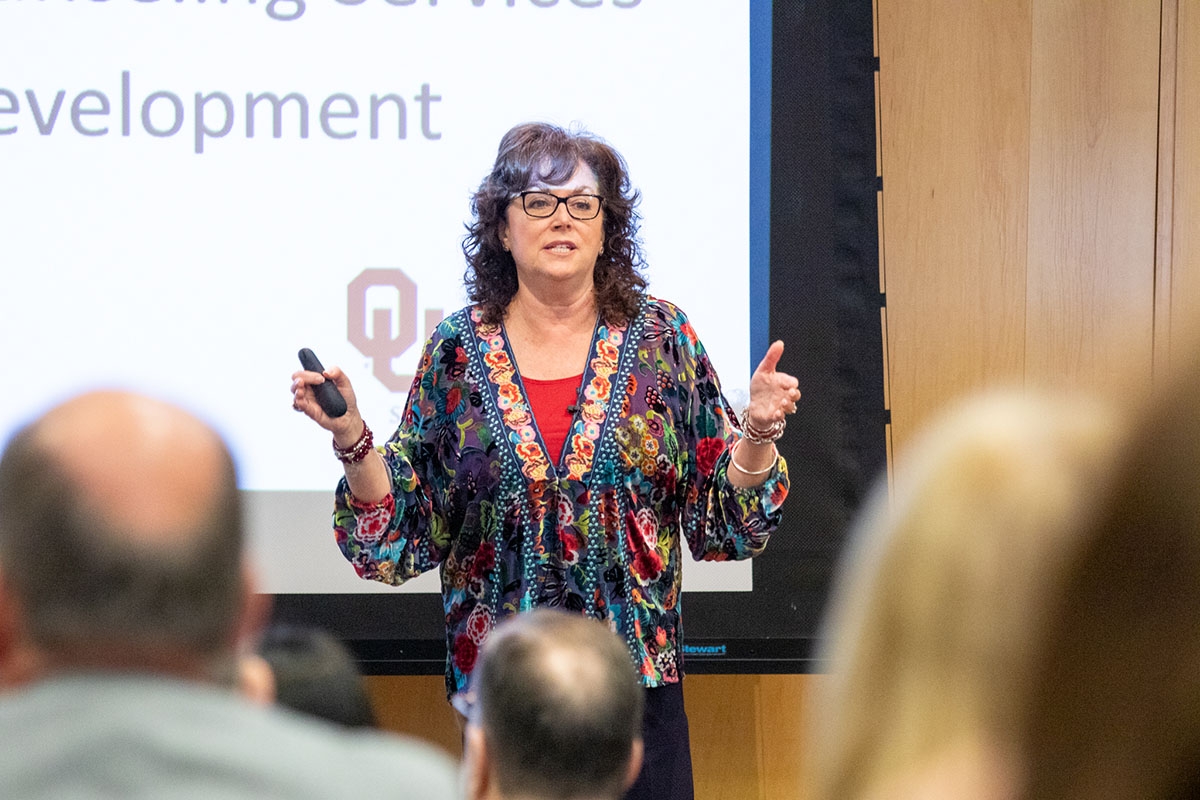
Dr. Teri Reed emphasized community and industry partnership to a crowd of more than 120 people at a State of OU Polytechnic gathering on Jan. 24. The crowd, consisting of higher education leaders, industry representatives, and state legislators among others, heard exciting news and updates from OUPI.
Dr. Reed began the presentation by explaining exactly what a polytechnic is and what it isn’t. She explained that the 21st century definition of a polytechnic uses innovative learning methods, real-world experiences, and industry partnerships to produce graduates uniquely qualified for technology professions.
This fall the bachelor’s completion program in cybersecurity will officially launch with the first OUPI students. Following close behind are bachelor’s completion degrees in artificial intelligence and software development and integration which are slated to begin fall 2025 pending approval by the OU Regents and Oklahoma State Regents for Higher Education. Future programs being considered for both bachelor’s completion and graduate-level degrees will be in digital manufacturing, health information systems, and advanced mobility.
And the workforce is ready for these graduates. Dr. Reed explained that the state of Oklahoma is already short more than 300 software developers and more than 600 cybersecurity positions are anticipated in the near future.
In order to achieve Dr. Reed’s stated goal of being a “student-ready college,” she is hiring faculty, as well as spearheading space and facility development. Attendees at the State of OUPI met the initial faculty hires in the areas of software development and integration and cybersecurity. These faculty bring more than 80 years of industry experience combined. Exciting facility enhancements underway include a cyber arena (the first of its kind in the state of Oklahoma), senior design studio, and digital manufacturing lab.
Future students are responding. Student applications stand at more than 30. The average age of the applicants so far is 29 with 13 percent being veterans, 33 percent first-generation college students, and 33 percent women. Many applicants are currently Tulsa Community College students and working adults interested in retooling and changing industries or advancing in their careers.
Community and industry financial support for the OU Polytechnic Institute has already been established by such entities as the George Kaiser Family Foundation, Google, Williams, Bank of Oklahoma, and, coming later this spring, the Pamela S. and Terry L. Carter Scholarship. And there are many more opportunities for partnerships, both financially and through contributions of resources and expertise. The future of OUPI is bright and northeastern Oklahoma continues to show its support.